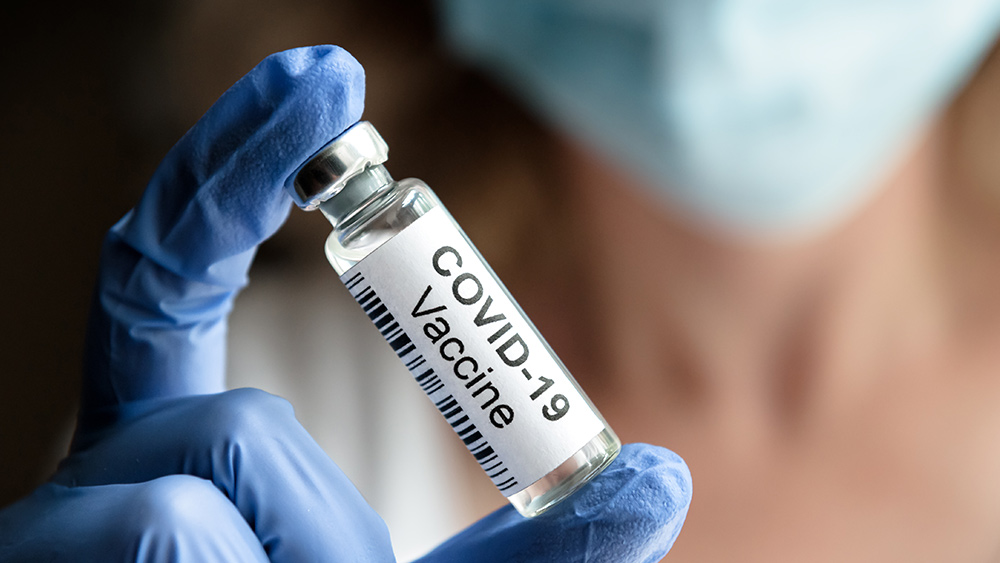Bayer won’t ask the Supreme Court to reverse Roundup cancer verdict
03/23/2021 / By Virgilio Marin

Bayer AG won’t ask the Supreme Court to reverse a $20.5 million verdict against it over the weedkiller Roundup. The German chemicals giant says that its decision not to appeal reflects a “strategic consideration” that it has a stronger case appealing a $25 million verdict in a separate lawsuit, Hardeman v. Monsanto. The company is currently seeking a review of that ruling from the U.S. Court of Appeals for the 9th Circuit.
Bayer’s decision ends the case that California groundskeeper Dewayne Anthony Lee Johnson filed against the now-defunct agrochemicals company Monsanto, which originally produced Roundup before being purchased three years ago by Bayer. Johnson claimed in a lawsuit that he developed a type of cancer called non-Hodgkin’s lymphoma after being drenched with Roundup, which contains the herbicide glyphosate.
“I washed up in the sink as best I could and changed my clothes. Later, I went home and took a good long shower but I didn’t think, ‘Oh my god, I’m going to die from this stuff,'” Johnson shared in an interview in 2018.
“Then I got a little rash. Then it got worse and worse and worse. At one point, I had lesions on my face, on my lips, all over my arms and legs.” (Related: Study reveals Bayer’s Roundup linked to “a host of chronic and mental illness”.)
Bayer, a multinational pharmaceuticals and life sciences company based in Germany, inherited the suit after buying out Monsanto for $63 billion in 2018. In the same year, Monsanto was ordered to pay Johnson $289 million in damages after a San Francisco jury unanimously ruled against the company.
A state judge later reduced the compensation to $78 million after an appeal, and then the California Court of Appeals reduced it further to $20.5 million after another appeal. The California Supreme Court refused to review that last decision.
“Bayer and Monsanto saw the writing on the wall – the Johnson verdict was grounded in science and careful application of California law, and the Supreme Court was never going to upset the verdict,” Johnson’s lawyer Brent Wisner told Reuters.
Billion-dollar Roundup settlements hound Bayer
Litigation over Roundup has been a massive headache for Bayer since its Monsanto takeover. Just last month, the company reached a $2 billion settlement that would cover future legal claims that Roundup caused cancer.
Under the settlement, Bayer would pay $2 billion over four years as compensation to individuals who developed non-Hodgkin’s lymphoma and were exposed to Roundup before diagnosis. Individual claimants could receive as much as $200,000 under the settlement.
Without accepting liability, the company also reached a deal last year to pay up to $10.9 billion to settle tens of thousands of lawsuits claiming Roundup caused cancer. Around $8.8 billion to $9.6 billion would be allotted to current lawsuits while $1.25 billion would be saved for a separate agreement to cover potential future class lawsuits.
The deal should bring closure to around three-quarters of current Roundup cases, according to Bayer. Bayer CEO Werner Baumann said at the time that the deal would “resolve most current claims and puts in place a clear mechanism to manage risks of potential future litigation.”
The chemicals giant maintained that glyphosate, the most widely used herbicide in the United States, is safe for human use. The Environmental Protection Agency also said that “there are no risks of concern to human health when glyphosate is used in accordance with its current label.” The regulator further stated that the chemical is unlikely to be a human carcinogen.
But the World Heath Organization’s International Agency for Research on Cancer deemed glyphosate a probable human carcinogen. Media reports on Johnson’s trials also revealed that Monsanto attempted to manipulate studies about the chemical, discredit critics and influence regulators.
Read more stories about glyphosate and claims that it causes cancer at Glyphosate.news.
Sources include:
Submit a correction >>
Tagged Under:
Bayer AG, cancer tumors, corporations, food science, glyphosate, groceries, herbicide, herbicides, Monsanto, non-Hodgkin’s lymphoma, poison, Roundup, Roundup lawsuits, Supreme Court, toxic chemicals, weedkiller
This article may contain statements that reflect the opinion of the author
RECENT NEWS & ARTICLES
COPYRIGHT © 2017 CANCER CAUSES NEWS





















